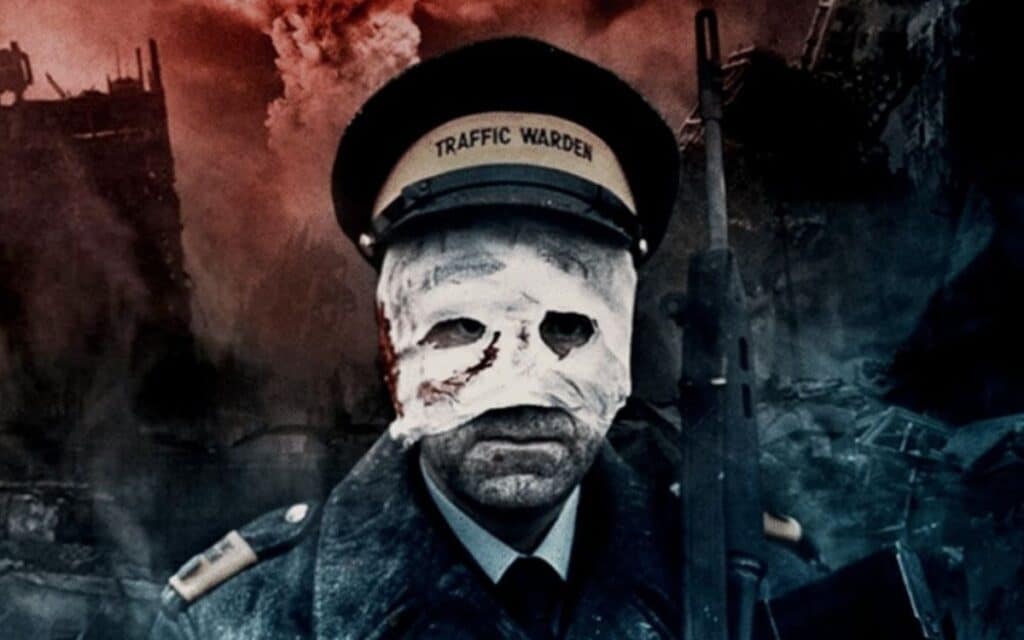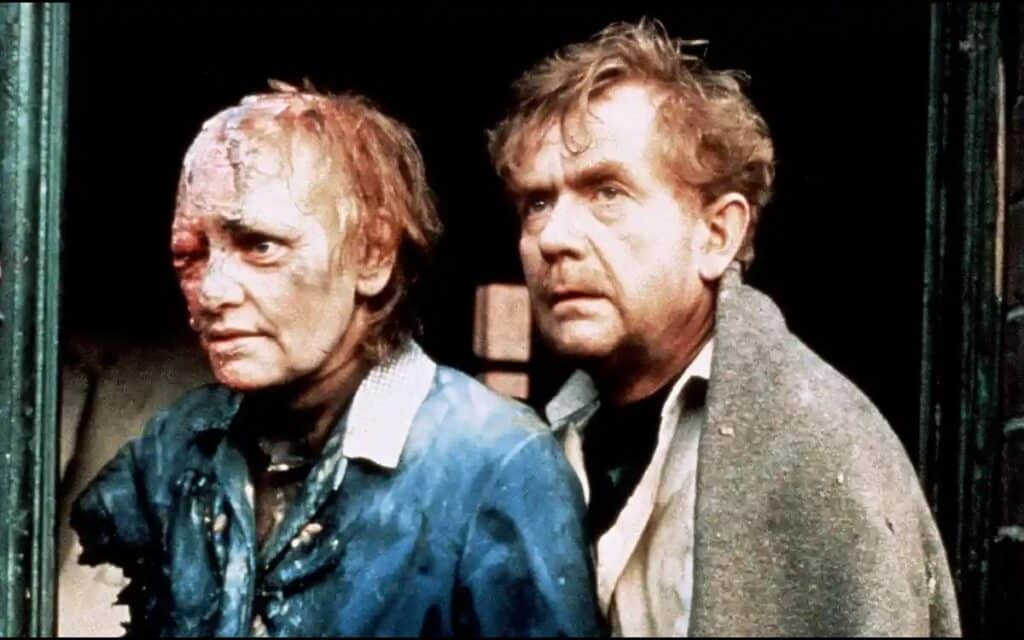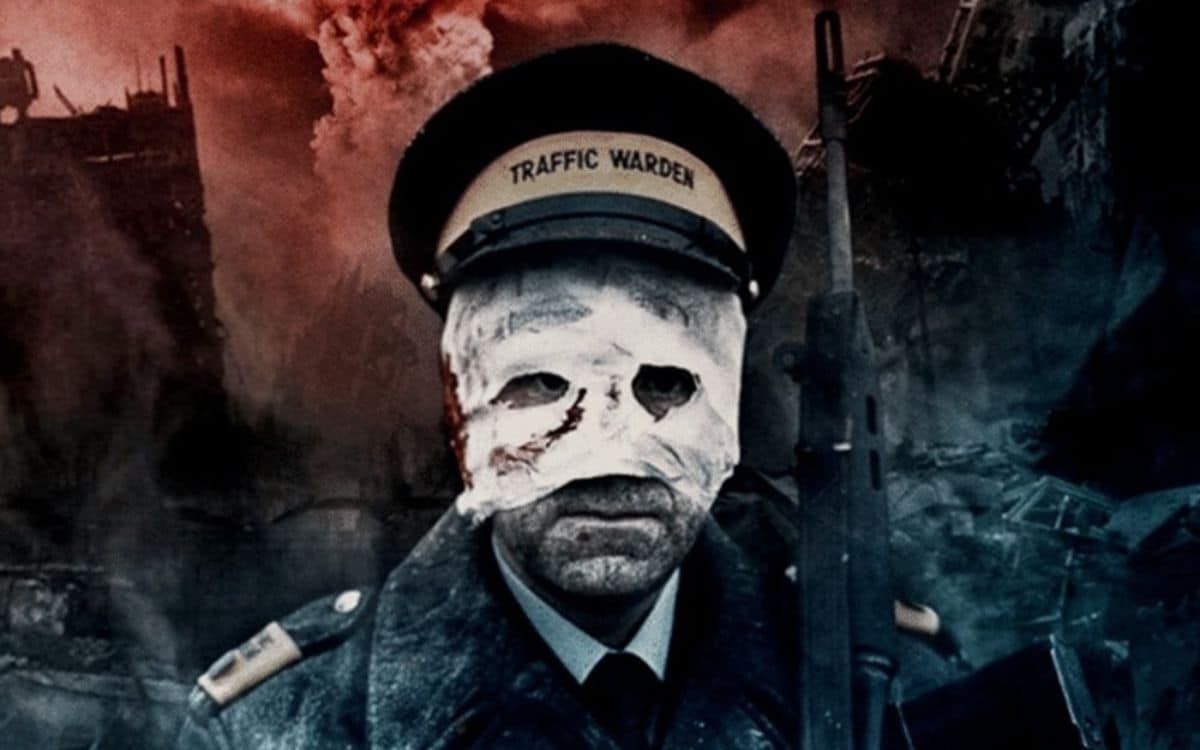Celebrating its 40th anniversary, Threads 1984 is a terrifying vision of nuclear apocalypse and still the most unsettling film in British TV history, writes DAVID SAUNDERSON

TITLE: Threads
RELEASED: 23 September 1984 on BBC
DIRECTOR: Mick Jackson
CAST: Paul Vaughan, Karen Meagher, Reece Dinsdale, David Brierley, Rita May, Nicholas Lane, Jane Hazlegrove, Phil Rose,, Henry Moxon, June Broughton, Sylvia Stoker, Harry Beety, Ruth Holden, Ashley Barker
Threads: The Chilling 1984 Film That Still Haunts Britain
Forty years ago, Threads aired on British television and left a scar on the national psyche. The BBC film pulled no punches and remains the most brutal depiction of nuclear war ever to grace the screen, far removed from the glitzy annihilation of Hollywood.
On 23 September 1984, millions of Britons sat down to watch what they thought was a standard BBC drama. What they got instead was a chillingly real vision of nuclear apocalypse. Set not in some far-flung city but in Sheffield – a place we all know, an industrial heartland in Yorkshire – it made the unimaginable feel frighteningly close.
Commissioned by Alasdair Milne, the BBC’s then Director-General, Threads was born from the tense atmosphere of the Cold War. Inspired by the 1966 film The War Game, which had been deemed too disturbing for broadcast, Milne felt it was time to confront the grim realities of nuclear conflict head-on.
Director Mick Jackson, fresh from his work on A Guide to Armageddon, was brought on board to make this nightmare a reality. Jackson was meticulous in his approach, consulting scientists, psychologists, and defence experts. The result was a film grounded in terrifying accuracy. The film’s production drew from hard-hitting resources like Carl Sagan’s Nuclear Winter and Duncan Campbell’s War Plan UK, adding a chilling layer of authenticity to its vision of a world undone.
Sheffield was chosen not just for its symbolism as Britain’s steel city, but as a stark reminder of the vulnerability of ordinary, everyday places. Even the city council, staunchly anti-nuclear, supported the film, perhaps knowing that sometimes, horror needs a home.
The casting was unglamorous and intentionally so. Local extras, many from the Campaign for Nuclear Disarmament, were used to embody the survivors, bringing a raw, unsettling realism to their performances. There are no heroes here, no dramatic last stand – just regular people, reduced to foraging through the rubble of their former lives.
Threads 1984 abandons the grand spectacle of Hollywood’s disaster films in favour of a cold, documentary-style realism. It’s a methodical, clinical depiction of devastation.

When Threads first aired in 1984, it shocked a nation, drawing in 6.9 million viewers and becoming the most-watched programme on BBC Two that week. The impact was global; it was shown without commercial breaks in the US, Australia, and Canada. Yet, despite its initial acclaim, the film faded from view, not airing on UK screens again until 2003. It’s now available on DVD and Blu-ray.
Watching Threads is not an easy experience, and it’s not meant to be. It’s a gut punch, a blunt force trauma to our sense of security. It strips away the romanticism often attached to cinematic catastrophes, replacing it with a harsh, unforgiving reality that still feels disturbingly relevant.
Forty years on, Threads still chills to the bone. It’s a warning that, in a world where nuclear tensions can flare up overnight, we are always just a thread away from total collapse.
Tell us your views of Threads 1984 in the comments section below!


